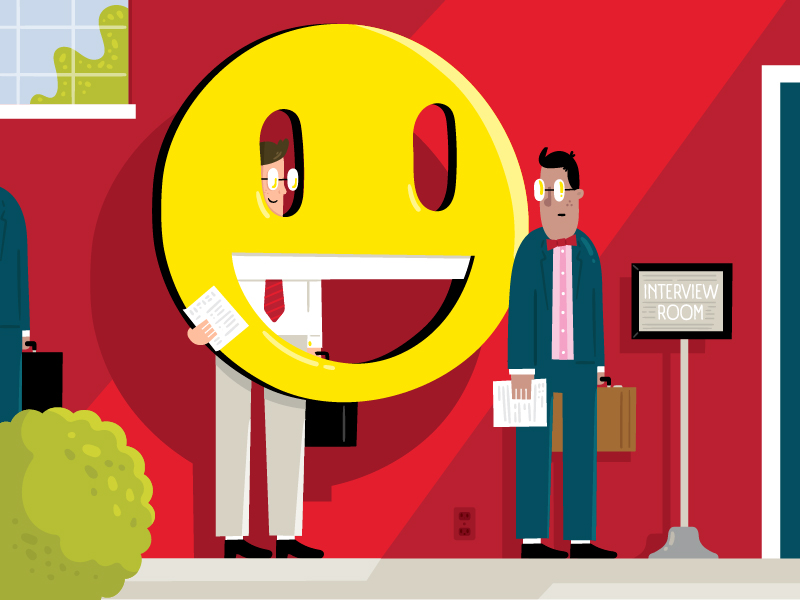As late as 2011, research showed hiring managers still discounted applicants who broke with gender-linked behavioral stereotypes — women seen as more direct and less friendly were less likely to be hired, and men seen as too warm or empathetic were passed over.
But that may be changing, says Terry College assistant professor of management James Matusik. In a recent study, he and his co-authors found men presenting with more warmth were viewed more positively by hiring managers.
“If you look at all the literature from the ’80s, ’90s and early 2000s, it suggests that men who are communal or warm were lashed out against in different ways during their careers,” Matusik says. “But recently we were noticing little asides and anecdotes, and even whole papers, showing men were actually getting boosts — seeing clear career advantages — for being warm and communal. We wanted to test that.”
Matusik and co-authors Rebecca Mitchell at the University of Colorado and Russell Johnson at Michigan State University reexamined the role of stereotypes in hiring decisions. Their paper, “Backlashes or boosts? The role of warmth and gender in relational uncertainty reductions,” was published in Human Resource Management earlier this year.
In the first part of the study, Matusik and colleagues looked at the experience of 103 undergraduate students using an interview center on campus for early-career job interviews. They asked students to rate themselves on traits such as warmth, sincerity and tolerance to gauge personality and on confidence, independence and competitiveness to gauge overall competency.
Weeks later, they contacted them to see if they secured a job offer.
They found male students reporting more warmth were almost twice as likely to get a job offer than other men, while women who described themselves as less warm were just as likely to get offers as their friendlier female counterparts.
The team also did structured experiments asking 800 business students to rate videos of male and female job candidates answering questions about project management. The participants rated the candidates on how likely they were to be hired. Once again, men judged more highly on warmth were rated more likely than other men to be hired.
The authors wanted to unpack what changed since the 2000s and how displaying warmth became a boon for men. In the experiment where they asked students to rate the videos of interview questions, they also asked how confident they were in predicting the applicant’s future behavior. The male candidates rated as warmer and friendlier were also rated as less risky hires.
Increased “relational uncertainty” — uncertainty about someone’s future behavior — was often tied to why warm men and unfriendly women were penalized in past studies of stereotypes and hiring, Matusik says. Hiring managers didn’t know what to expect from employees who didn’t display stereotypical characteristics, and they wouldn’t take a chance on them.
In this study, they found even though friendly men violated past stereotypes, they did so in a way that made participants feel less uncertain — making them stand out in a good way, Matusik says.
Matusik cautions this is just one study, and only focused on applicants seeking entry-level work — not promotions or leadership roles. More research is needed to see if warmth gives men a boost later in their careers.
And while it may be good news for warmer-than-normal guys, what the study says about how we treat professional women is potentially more important, Matusik says.
Past research confirmed women not viewed as warm were sometimes discounted or penalized for counter-stereotypical workplace behavior. Corporate leadership training hammered these concepts as well, advising women to temper their competitiveness or forwardness with warmth or more relational leadership, Matusik says.
But he and his team didn’t find any evidence to support that, at least at the hiring stage.
“You can construe that as positive,” Matusik says. “Our evidence suggests that women who self-identify as low warmth are equally as likely to receive job offers as their warmer female peers.”

